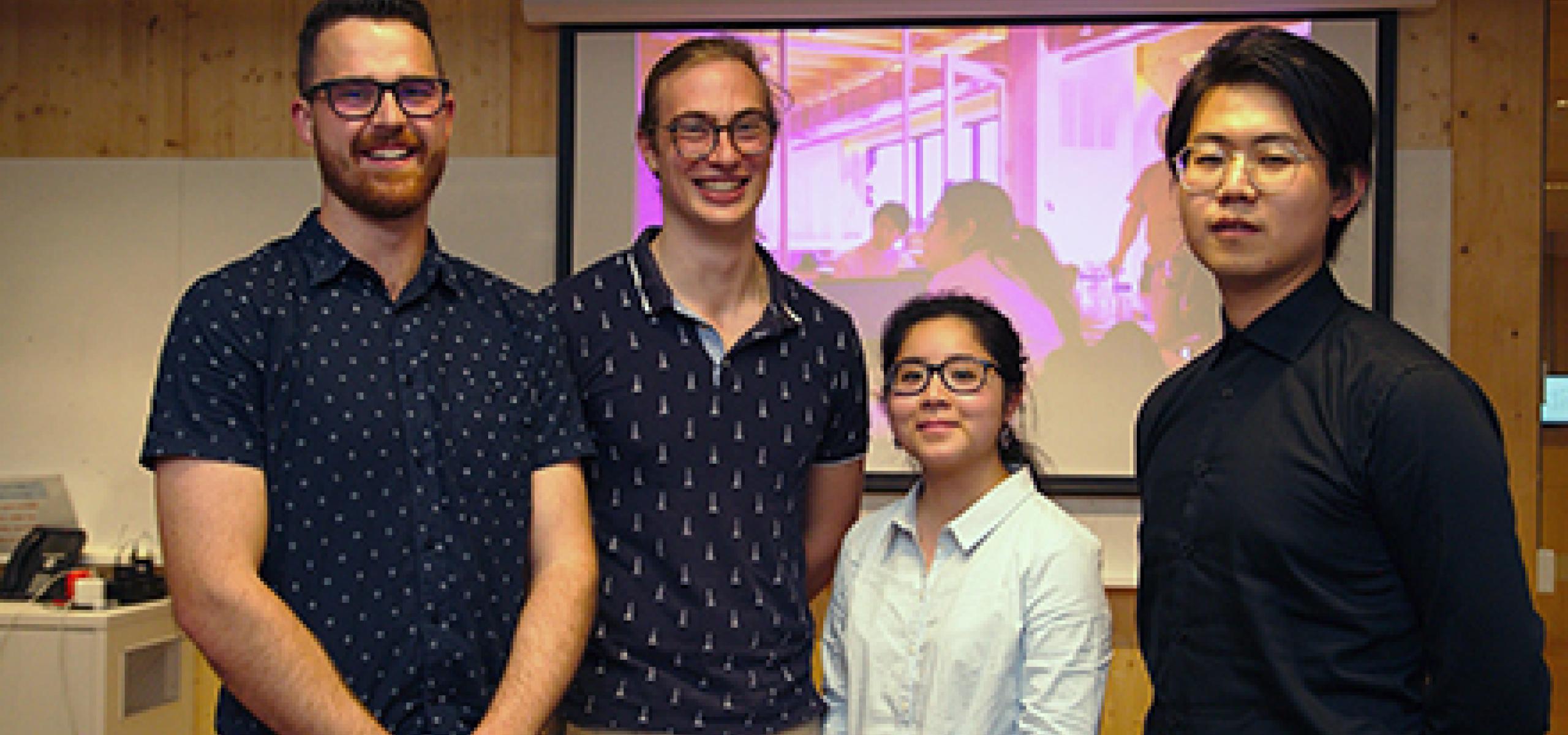
Team OLAF (l to r) Connor McFadyen, Jon Thomson-Settle, Vy Dinh and Arthur Hao during the ACT round of the Disrupting Law Hackathon.
We aimed not only to digitise the application form ... but to also simplify and streamline the process for both Legal Aid ACT and applicants.
By Natalia Guisasola
Bachelor of Art History and Curatorship/Laws (Hons)
During the latter half of 2019, our team worked tirelessly to put together an award-winning presentation for a panel of judges at the Disrupting Law Hackathon, the first national competition presented by The Legal Forecast.
We entered the competition representing the ACT as Team OLAF (Online Legal Application Form), comprising law students Natalia Guisasola, Jon Thomson-Settle, Vy Dinh (ANU), Arthur Hao and Connor McFadyen (University of Canberra).
We were asked to create innovative solutions and we chose to utilise technology to bridge access to justice that many applicants for community legal support face.
Due to the small, intimate nature of Canberra, we decided to conceptualise the development of software for Legal Aid ACT. Two of our team members knew firsthand the challenges both the commission and clients face when applying for a grant of aid.
Team OLAF during a mentoring session after the ACT round.
Our solution sought to revolutionise the Legal Aid application form by using a wide variety of technology available to us. We aimed not only to digitise the application form, which is currently only accessible in hard copy, but to also simplify and streamline the process for both Legal Aid ACT and applicants.
This was done by utilising logic pathways to ask only relevant questions, incorporating simplified English explanations for questions and allowing applicants to complete and submit the form at any time, from any location. The future for growth in this area is immense.
As a team, we are incredibly proud of our work and grateful for the exposure and support we received through the Disrupting Law Hackathon. We strongly encourage all students to engage in future events.
Read Team OLAF's solution summary from the Disrupting Law Hackathon here.
